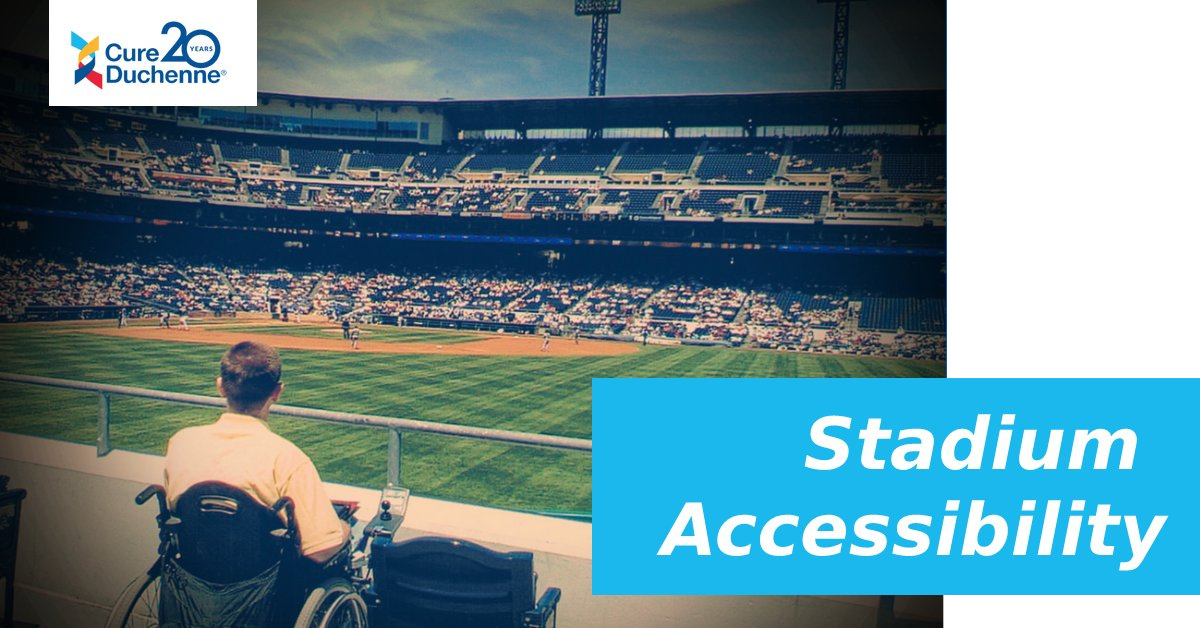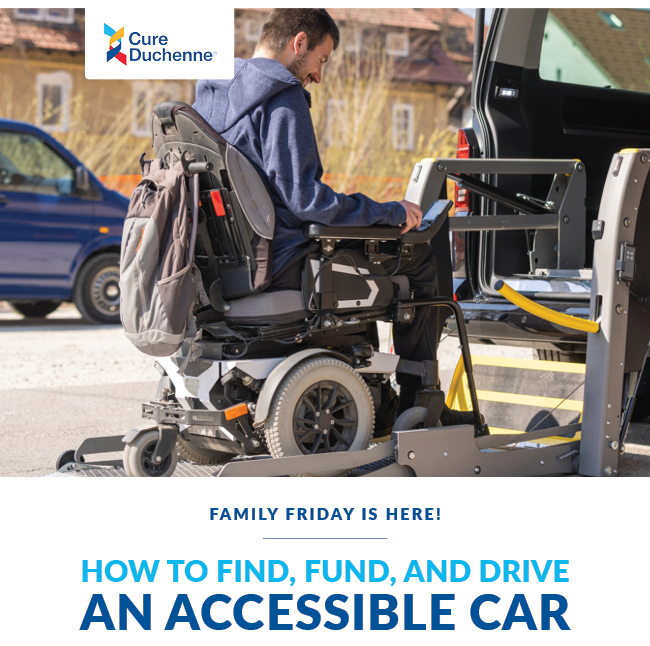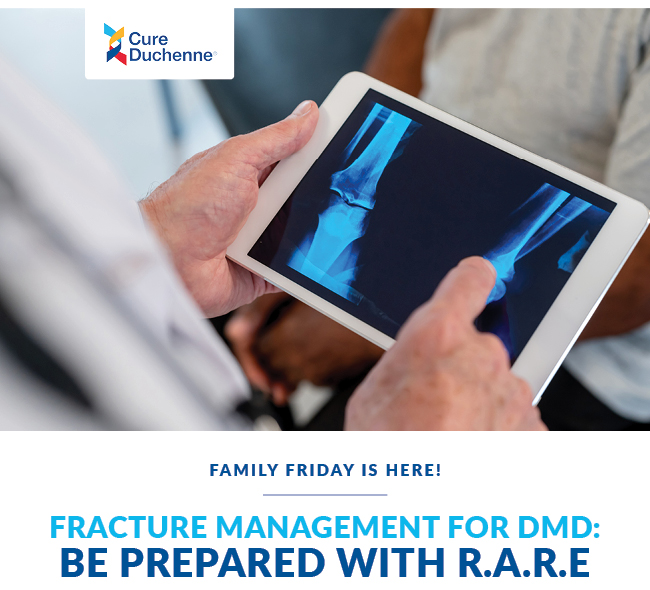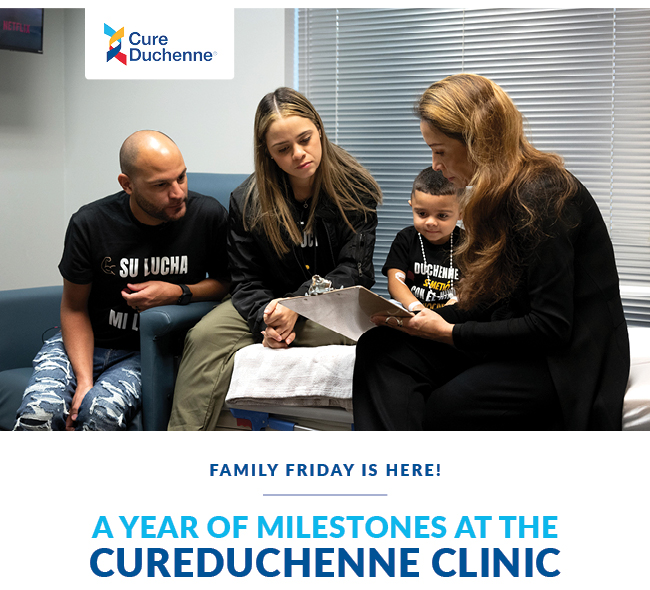Stadium Accessibility

What to Know Before You Go
Attending a concert or sporting event is a fun activity for everyone. With proper planning and research, people with Duchenne can also participate and enjoy their favorite band or sports team with their friends.
1. Know Where You Are Going
- It’s important to take a few minutes to research the venue you are attending. Ask yourself questions like how far away is it? Is the main entrance accessible? Are there enough wheelchair-accessible parking spots? Is there enough space for you to navigate your wheelchair? Yelp, Google Reviews, and Google Street View are all tools you can use to understand an event’s accessibility.
- Talking to an employee familiar with the venue ahead of time and getting there early can help overcome any issues that may pop up.
2. Book in Advance
- There are only a certain number of wheelchair-accessible seats available at each venue. More specifically, stadiums with more than 5,000 seats must have at least 36 wheelchair spaces plus one for every 200 seats after. So, if you want to grab them before they go, you’ll have to reserve them as soon as possible.
3. Call a Real Person When Ready to Buy
- They can often give you more context and information than a ticket-purchasing portal. Someone who works there full-time will know the ins and outs of a venue better than a website. Chances are they’ve also worked with other people who use wheelchairs before.
- As part of the Americans with Disabilities Act, stadiums are required to be designed, constructed, and altered in compliance with accessibility standards created by the Department of Justice. Any modern stadium should have reasonable accommodations for a wheelchair. If it is particularly old and historical, accommodations might not be available. Make sure the venue is ADA-compliant before you buy tickets.
- ADA compliance does not necessarily ensure that it will work for your specific needs. The regulations are broadly designed for any disability. Reasonable accommodations for one person might mean another to someone else. Be specific with your needs when calling. For example, my mother needs to help me in the bathroom — are family restrooms available? You may need to get creative if it doesn’t work, such as asking stadium personnel to help you at the concession stand, having a strong friend around to transfer you to a regular seat, or getting dropped off near the elevators if they are far away from accessible parking spaces.
4. Arrive Early, Early, Early
- There’s no substitute for arriving a few minutes before doors open, or in the case of sporting events, about 30 minutes before the game starts. If anything does go wrong, you have given yourself time to fix the problem. Some venues may ask you to check your power wheelchair into guest services and use one of their own pushchairs instead. That takes some time, and you don’t want to miss any of the action.
Hawken’s Tips
Hawken Miller is a journalist, bringing his experience writing for outlets like The Washington Post and BioNews, along with his personal experience living with Duchenne muscular dystrophy, to CureDuchenne. Learn more about Hawken here.
“When I attend Anaheim Ducks hockey games with my dad, there are a few systems that we employ to ensure everything goes smoothly. We typically check my power chair into guest services, take a manual chair to our seat section, and my dad carries me down to the seat. If you can walk to a regular seat, try bringing a custom seat cushion with you. It can elevate you slightly so you can see better, plus it will allow you to sit for a while without getting sore.
When I go with a friend who cannot carry me, we swap our existing seats to the wheelchair section so I can easily pull up without having to transfer.
It’s a good rule of thumb to pack everything you might need — medicine, urinal cup, tissues, warm clothes, etc. — in a clear plastic bag. Many stadiums, including the LA Coliseum, require you to bring a clear bag.”




